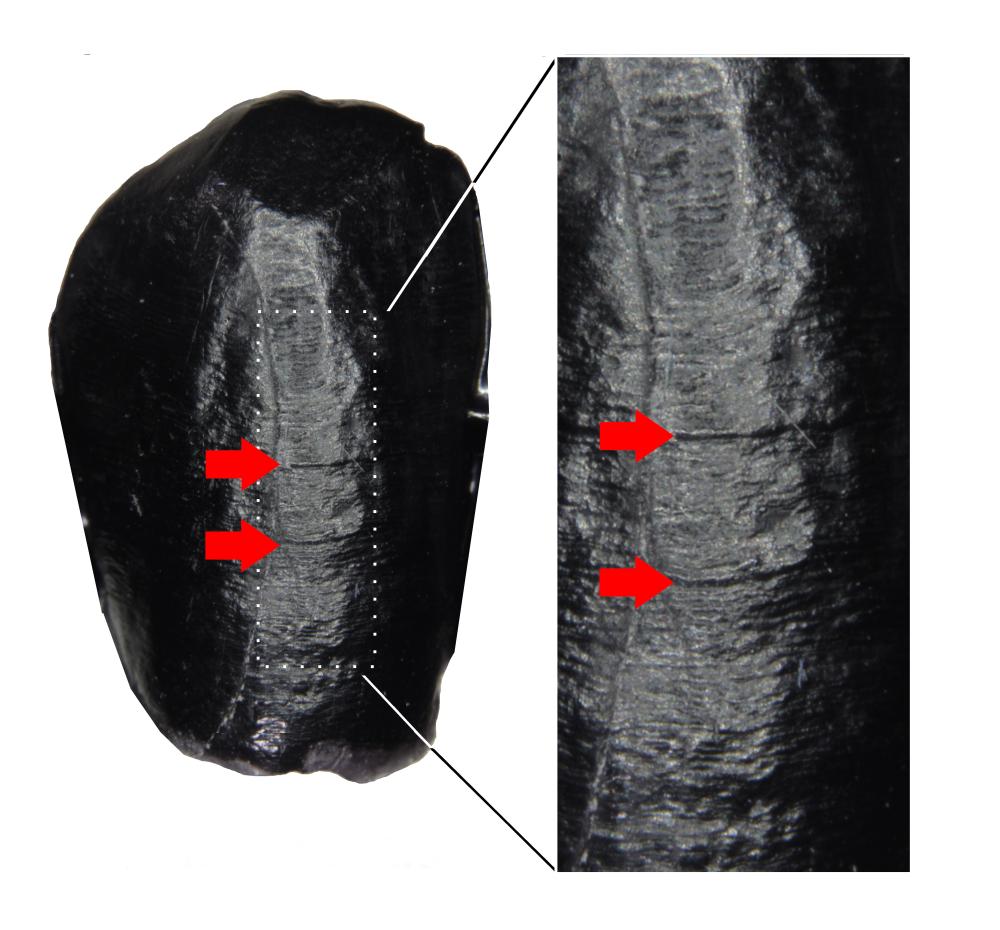Press Releases
27.05.2024
Stress in Childhood: differences between Neanderthals and modern humans in the Paleolithic Age
Research team at the University of Tübingen studies teeth for indications of difficult phases in the early years of life several tens of thousands of years ago
Although the children of Neanderthals, who lived until around 40,000 years ago, and those of modern humans of the Upper Paleolithic Age 50,000 to 12,000 years ago were probably subjected to comparable stresses, systemic stress peaked at different stages of development. Research into their teeth has revealed that enamel growth reflects stress phases caused by issues such as disease and malnutrition during the early years of life. The study was carried out by Laura Limmer, Dr. Sireen El Zaatari and Professor Katerina Harvati from the Institute for Archaeological Sciences at the University of Tübingen and international colleagues. The researchers hypothesize that modern humans may have had better strategies than the Neanderthals to minimize the stresses for their children during difficult stages of development. Their study has been published in Scientific Reports.
The Paleoanthropologists studied 867 teeth, including 423 from 74 individual Neanderthals and 444 from 102 individual modern humans from the Upper Paleolithic. The teeth were discovered at 56 different archeological sites in western Eurasia. Both milk teeth and permanent teeth are formed in childhood. “If children experience infections or other diseases or the food supply is poor, growth disruptions can manifest in dental enamel. Since teeth do not remodel, we can also identify such defects in the teeth of adults,” explains Sireen El Zaatari. The regularity of dental enamel formation enables associating such occurrences with specific childhood development stages.
Possible strategies
As a whole, the researchers found that the Neanderthals and modern humans from the Upper Paleolithic Age were subjected to comparable stresses in their early childhood. “We did however observe differences in the distribution of the dental enamel defects over the development stages: in modern humans, enamel defects were more likely to occur within the timeframe when the children were being weaned,” says Limmer. By comparison, although there were also increased enamel defects at the assumed time of weaning in the Neanderthal children, the peak physical stress occurred at a later development stage.
The researchers assume that children of the Paleolithic Age were subjected to great stress from weaning because an increased demand for energy during growth coincided with the increased risk of malnourishment. “It’s possible that modern humans gained an advantage over the Neanderthals through supporting their children better in this difficult phase, for instance by protecting the children for longer and a better supply of food,” says El Zaatari. This behavior may have been a contributing factor in modern humans surviving until today, while the Neanderthals died out. “It’s often stated that Neanderthals lived in an especially harsh climate with low temperatures and that this led to them perishing. Yet for a certain period Neanderthals and modern humans were subjected to the same climatic conditions, therefore we are researching other explanations.”
Publication:
Laura S. Limmer, Matteo Santon, Kate McGrath, Katerina Harvati, Sireen El Zaatari: Differences in childhood stress between Neanderthals and early modern humans as reflected by dental enamel growth disruptions. Scientific Reports, https://doi.org/10.1038/s41598-024-61321-x
Contact:
Dr. Sireen El Zaatari
University of Tübingen
Institute for Archaeological Sciences
Palaeoanthropology
+49 7071 29-76554
sireen.el-zaatari@uni-tuebingen.de
Contact for press:
Eberhard Karls Universität Tübingen
Public Relations Department
Oliver Häußler
Temporary Director
Janna Eberhardt
Research Reporter
Telefon +49 7071 29-77853
Fax +49 7071 29-5566
janna.eberhardt@uni-tuebingen.de
All press releases by the University of Tübingen

